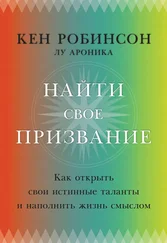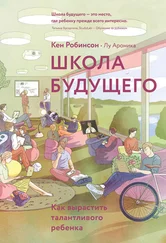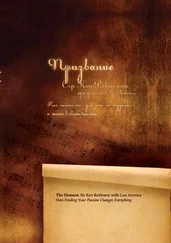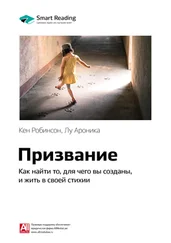Кен Робинсон - The Element
Здесь есть возможность читать онлайн «Кен Робинсон - The Element» весь текст электронной книги совершенно бесплатно (целиком полную версию без сокращений). В некоторых случаях можно слушать аудио, скачать через торрент в формате fb2 и присутствует краткое содержание. Год выпуска: 2009, ISBN: 2009, Издательство: Penguin Books Ltd, Жанр: Самосовершенствование, на английском языке. Описание произведения, (предисловие) а так же отзывы посетителей доступны на портале библиотеки ЛибКат.
- Название:The Element
- Автор:
- Издательство:Penguin Books Ltd
- Жанр:
- Год:2009
- ISBN:9780141911250
- Рейтинг книги:3 / 5. Голосов: 1
-
Избранное:Добавить в избранное
- Отзывы:
-
Ваша оценка:
- 60
- 1
- 2
- 3
- 4
- 5
The Element: краткое содержание, описание и аннотация
Предлагаем к чтению аннотацию, описание, краткое содержание или предисловие (зависит от того, что написал сам автор книги «The Element»). Если вы не нашли необходимую информацию о книге — напишите в комментариях, мы постараемся отыскать её.
The Element — читать онлайн бесплатно полную книгу (весь текст) целиком
Ниже представлен текст книги, разбитый по страницам. Система сохранения места последней прочитанной страницы, позволяет с удобством читать онлайн бесплатно книгу «The Element», без необходимости каждый раз заново искать на чём Вы остановились. Поставьте закладку, и сможете в любой момент перейти на страницу, на которой закончили чтение.
Интервал:
Закладка:
Why is this happening? Because the adult participants in the program have come back to life. Instead of whiling away their days waiting for the inevitable, they have a reason to get up in the morning and a renewed excitement about what the day might bring. Because they are reconnecting with their creative energies, they are literally living longer.
There’s something else the children learn. Every now and then, the teachers have to tell them that one of their book buddies won’t be coming any more; that this person has passed. So the children come to appreciate at a tender age that life has its rhythms and cycles, and that even the people they become close to are part of that cycle.
In a way, the Grace Living Center has restored an ancient, traditional relationship between the generations. The very young and the very old have always had an almost mystical connection. They seem to understand each other in a fundamental, often un‐spoken way. Our practice in the West is often to keep these generations apart. The Book Buddies program shows in a simple yet profound way the enrichment possible when generations come together. It shows too that the elderly can revive long‐lost energies if the circumstances are right and the inspiration is there.
There’s Time
What everyone from Susan Jeffers to Julia Child to the book buddies teach us is that remarkable, life‐enhancing things can happen when we take the time to step out of our routines, rethink our paths, and revisit the passions we left behind (or never pursued at all) for whatever reason. We can take ourselves in fresh directions at nearly any point in our lives. We have the capacity to discover the Element at practically any age. As the actor Sophia Loren once said, “There is a fountain of youth: it is your mind, your talents, the creativity you bring to your life and the lives of the people you love. When you learn to tap this source, you will truly have defeated age.”
CHAPTER TEN For Love or Money
GABRIEL TROP is an accomplished academic scholar. When I met him, he was at Berkeley studying for a Ph.D. in German literature. This work means a great deal to him, but it is not the only thing about which he is passionate. He also has an overwhelming attraction to music. “If I were to lose the use of my hands,” he said to me, “my life would be over.”
Yet Gabriel has never entertained the thought of becoming a professional musician. In fact, for a long time he didn’t want to be involved in music at all. In his first years of high school, Gabriel would look pityingly at the music students, struggling across the campus with their bulky instrument cases, turning up at school for rehearsals hours before anyone else had to be there. That wasn’t a life for him, especially the part about getting to school extra early. He vowed secretly to avoid music.
However, one day, in the music class that was part of his school’s standard curriculum, he was tinkling idly on the piano and realized that he found it easy to pick out tunes. With a sinking feeling, he realized too that that he actually enjoyed doing it. He tried to disguise his obvious pleasure from the music teacher, who had wandered over to listen. He must not have done this particularly well, because the teacher told Gabriel that he had a good ear and suggested that Gabriel go into the music storeroom to see if any of the instruments there appealed to him.
A friend of Gabriel’s played the cello, and for this reason and no other, Gabriel decided to try out one of those in the storeroom. He found that he loved the shape and size of the instrument and the deep, sonorous noise it made when he plucked the strings. One cello in particular, had “a wonderful smell of middle school varnish.” He decided to break his vow and to give the cello a chance. When he began practicing, he took it very casually. But he quickly found that he loved playing this instrument, and that he was spending more and more time doing so.
From there, Gabriel practiced so often and with such intensity that within a couple of months he was playing reasonably well. Within a year, he was the principal cellist in the school orchestra. This meant, of course, that he arrived at school early in the morning, dragging his bulky instrument case across the campus to the pitying looks of the nonmusicians he had left behind.
Gabriel also loves literature, the German language, and academic work. At some point, he had to make a hard decision between music and academics as his primary focus in life. After a long internal struggle, he chose German literature because he felt that doing so would allow him to continue to spend time as a cellist, while if he dedicated himself to a profession in music, the time required to do so would have made it nearly impossible for him to explore German poetry in depth. “I chose literature because it seemed to me compatible with an intensity of music playing, and if I were to be a professional musician, my attachment to literature would have been disproportionately sidetracked. So this arrangement was really the one I could find where I could remain a dedicated cellist and sustain a high degree of involvement with literary language.”
Still, he plays for hours every day and continues to perform (he recently played a cello concerto with the University of California Berkeley Symphony Orchestra). He doesn’t know how he would survive without regular immersion in the practice and enjoyment of music. To call this a hobby, he says, would be ridiculous. Music is elemental in his life, and in music, he has found his Element.
In the truest meaning of the word, Gabriel is an amateur musician. And he wouldn’t have it any other way.
For the Love of It
At the most basic levels, professionals in any field are simply those people who earn their living in that field, while amateurs are people who don’t. But the terms amateur and professional often imply something else—something about quality and expertise. People often think of amateurs as second‐rate, as those who perform well below professional levels. Amateurs are the ones who gesticulate too wildly in the local theater production, who score over a hundred on the golf course, or who write cute stories about pets in the town’s free newspaper. When we call something “amateurish,” we use the word as a pejorative. We’re suggesting that the thing upon which we’re commenting is nowhere near professional, that the effort is something of an embarrassment.
Sometimes it’s perfectly reasonable to draw sharp distinctions between professionals and amateurs. There can, after all, be enormous differences of accomplishment between them. If I had to have a vasectomy, I’d greatly prefer to put myself in the hands of someone who did this sort of thing for a living rather than someone who occasionally dabbled in it. But often the differences between professionals and amateurs have less to do with quality than with choice. Many people, like Gabriel, do perform at professional levels in the fields they love. They simply choose not to make their living that way. They aren’t professionals in this field because they don’t make money that way. They are, by definition, amateurs. But nothing about their skill is “amateurish.”
The word amateur derives from the Latin word amator , which means lover, devoted friend, or someone who is in avid pursuit of an objective. In the original sense, an amateur is someone who does something for the love of it. Amateurs do what they do because they have a passion for it, not because it pays the bills. True amateurs, in other words, are people who have found the Element in something other than their jobs.
In “The Pro‐Am Revolution,” a report for the British think tank Demos, Charles Leadbeater and Paul Miller underline the rise of a type of amateur that works at increasingly higher standards and generates breakthroughs sometimes greater than those made by professionals—hence the term Pro‐Am . In many cases, new technology is providing a wider group with apparatus once unaffordable to the amateur—CCD chips for telescopes, Pro Tools for musicians, sophisticated video editing software for home computers, and so on. Leadbeater and Miller point to the emergence of hip‐hop, a musical genre that started with the distribution of handmade tapes.
Читать дальшеИнтервал:
Закладка:
Похожие книги на «The Element»
Представляем Вашему вниманию похожие книги на «The Element» списком для выбора. Мы отобрали схожую по названию и смыслу литературу в надежде предоставить читателям больше вариантов отыскать новые, интересные, ещё непрочитанные произведения.
Обсуждение, отзывы о книге «The Element» и просто собственные мнения читателей. Оставьте ваши комментарии, напишите, что Вы думаете о произведении, его смысле или главных героях. Укажите что конкретно понравилось, а что нет, и почему Вы так считаете.












